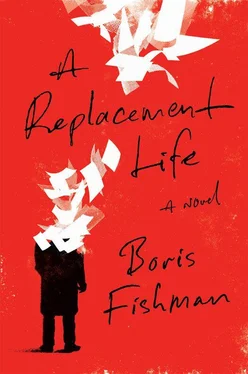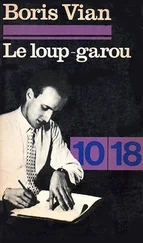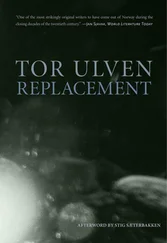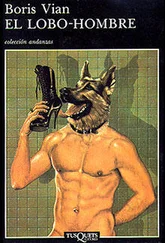Slava’s mind raced. If he turned Otto down, that would only increase suspicion. But why? Slava had every right to wish not to get involved. He had decided to separate from his neighborhood, so this was exactly the kind of entanglement he meant to stay away from. However, Otto knew a frightening number of things about him — how? No, Slava had to agree to a meeting. Under the guise of giving advice, he could ferret out what the German knew. Also, he needed to burn every piece of hard-copy evidence, retrieve the faxes from Grandfather’s house, delete the files from his computer…
It had finally happened. Even as, all these weeks, he simultaneously dreaded and brushed away the possibility — why did he have to be caught? he didn’t — Slava didn’t feel surprise at the news on the other end of the line. It was relief of a kind: It had finally happened, the worst was in, and now he could get down to dealing with it. He had to start by meeting Otto. Certainly, he wasn’t going to allow Otto to visit him at home; no, he wasn’t as easy as that. But it would seem strange if Slava volunteered to go to the Conference — an overaccommodation. Fine, they would meet in a bar. Slava would nurse a beer and Otto would keep drinking until he started to become careless with his words. That was the way.
“When do you want to meet?” Slava said. “I can meet tomorrow.”
“Tomorrow?” Otto said. “Thanks God it’s Friday, am I right? No, take the weekend, Mr. Gelman. We are not solving a murder here, ha-ha. This can keep — is that the expression? Is Monday available for you? Monday evening. I am finishing here at six P.M., even if they try to keep me with chains. That’s the finishing hour at Century , isn’t it?”
How did he know these things? Slava cursed himself for being too eager. “Seven?” he said weakly. It would be light out still, that felt safer somehow. Slava gave Otto the name of a bar in the neighborhood. If the man wanted advice so much, yes, he could come to Slava. The pub was neither a dive nor fashionable; it was invisible in the way Slava wanted.
“That is so convenient,” Otto exclaimed. “I live in the neighborhood! The Yorkville area has a fantastic German history. I am almost like home!” He mentioned a bakery that prepared strudel and a butcher’s that had been selling wurst since the 1920s. “I would not say, if we agree to be honest, the Upper East Side is a neighborhood for a thinking person. It is the Florida of New York, no? The recent graduates of the colleges, they are drinking themselves to blindness and everyone else is slowly waiting to die, even if they are forty years old! If the small German connection was not present, I would not live there.”
Slava was still processing the news that he and Otto lived in the same neighborhood. Had Otto seen him on the street? Had they eaten at the same restaurant? Had Otto watched him from across a bar? Slava had never thought to look around him in Manhattan, only Brooklyn. They were neighbors.
“Akh, Mr. Gelman, you really have to forgive me. It’s ten o’clock and I am chewing your ear with this nonsense. We will talk about everything — about war, and maybe also a little bit about writing — when we meet. I look forward to it! Do you forgive me for calling so late?”
He really wanted an answer. Slava heard himself forgiving the German. The German erupted into a new series of exclamations. Only then did he bid Slava goodbye.
SATURDAY, AUGUST 26, 2006
Slava had spent most of the night excavating the sheets on his side of the bed, grateful for the dead way in which Arianna slept. At last, he rose, the hour too early for light even in summer, and sat at her silver-leafed kitchen table, his hands clasped — a guilty person. He tried to reason through his options, but even though, restless in bed, he could think of nothing but sitting across from Otto, their conversation writing itself in his mind like a false letter, now, at the table, his head filled with a stubborn blankness. He chuckled sullenly. And what would Grandmother say about this turn? Was she an accomplice in Grandfather’s subterfuges, and if so, an eager one or ashamed? Slava couldn’t imagine Grandmother ashamed, even of sin. And yet, she was an upright person. So upright he couldn’t imagine her loving Grandfather more than her own uprightness. But she was upright only toward loved ones. Slava mashed his hands together in agony, his eyes burning with a fatigue that made clear thinking impossible. He had been writing letters about his grandmother for weeks, but in moments like this, he felt as if he knew her barely at all, like a territory that grew larger the more of it you walked. It was the same with Arianna, he noted bitterly. Worse: Grandmother only became more unknown; Arianna became more unfamiliar.
He checked the kitchen window for light, but you could see little there, as it overlooked one of those poetic brick walls on which so many New York windows gaze. The clock said a quarter after five. Slava stole back into the bedroom and lifted his cell phone from the pocket of his jeans. Arianna remained in oblivion, but the cat opened a knowing gray eye. Slava froze in place, then ridiculed himself — his guilt was such that he was ready to answer to an animal. Advertising his indifference to the bulk of black fur, he strode out of the room.
He swallowed heavily as the telephone rang. She would be up, she had to be at the pharmacy at half past six, but no one dialed for leisure at five A.M., and indeed, when his mother snatched up the phone, her voice was frantic with fear. Now only one old Gelman remained about whom bad news could arrive at this unholy hour — why did old people die only in the night? — and though she had checked in with Grandfather in the evening (he had complained about the springs in his mattress, would these be his last words to her? how hopeless and absurd), her son was now in contact with the old neighborhood more than she was. He might know first.
“Everything’s fine, it’s fine,” he reassured her.
“What is it?” she said, her voice giving up fear but not puzzlement. No one was dead, but her son would not call just to call. She’d had to enter intimate terms with this new understanding in her life, like an illness.
Dear Mother: Was your mother a liar, a cheat? Did she look the other way while Grandfather fenced cars, smuggled gold, sold minks on the black market? Or was she his conspirator, his handler, his Bonnie? Did her uprightness extend only to the people she loved? What would she tell me to do now?
Instead, he said: “Summer’s ending.”
“Slava?” she said. “What is it?”
“Do you remember Mariela?” he said.
“The Spanish girl?” she said. Slava and Mariela had dated for a year and a half during college and had given it up — unusual wisdom, such young people — when they began to ask more of it than it could give. But for several months, they had been inseparable, the daughter of Colombian Catholics and the son of Soviet Jews making out in an empty room at the Met.
“I told Grandmother about her,” he said. “She was sick already.”
“Mariela? Have you seen her?”
“Do you know what Grandmother said?” he said. “She listened carefully. Then she said: ‘Does she know how to cook?’”
His mother snorted.
“I said no. You remember Mariela — she didn’t own a pot for macaroni. Grandmother thought about it, and then she said: ‘What a putz.’”
His mother laughed, her voice less cautious. “Have you been going to the grave?” Slava said.
“Every weekend,” she said.
“Maybe you should take some time from the pharmacy,” he said.
Читать дальше











